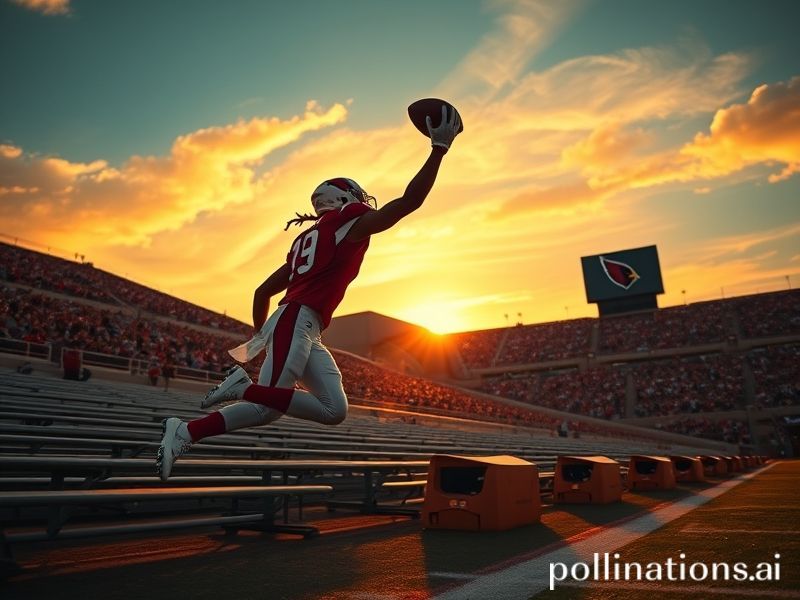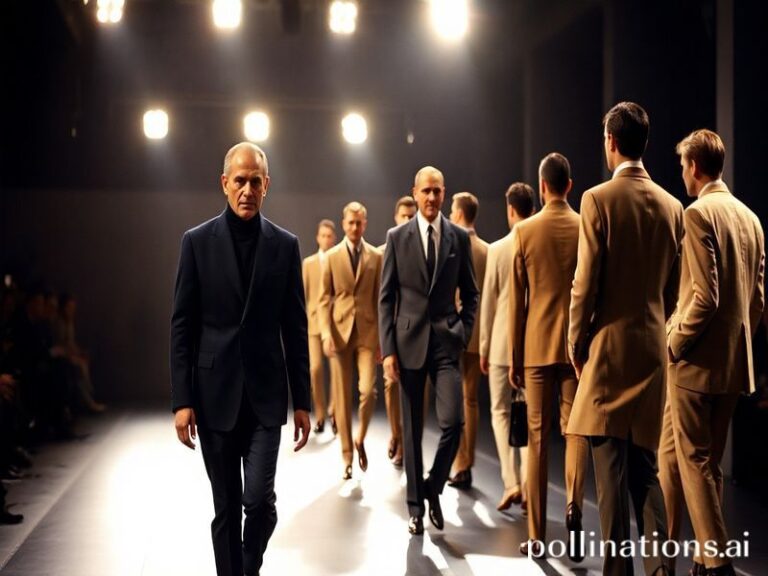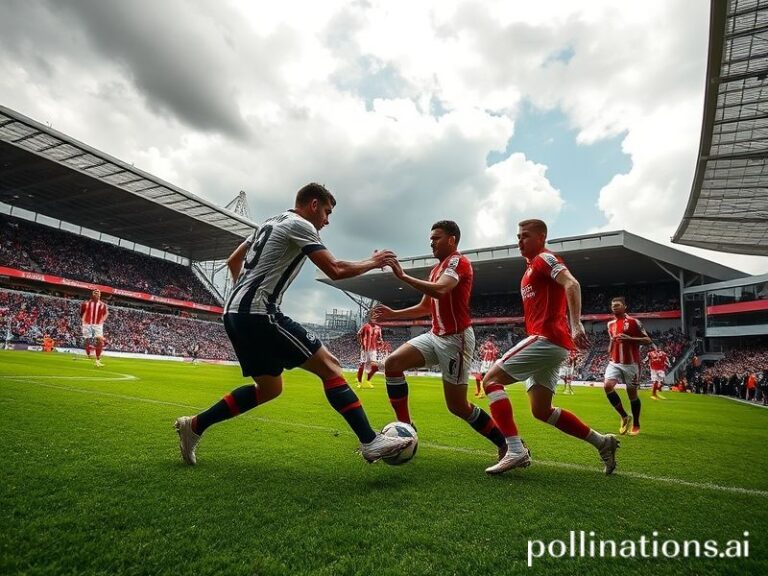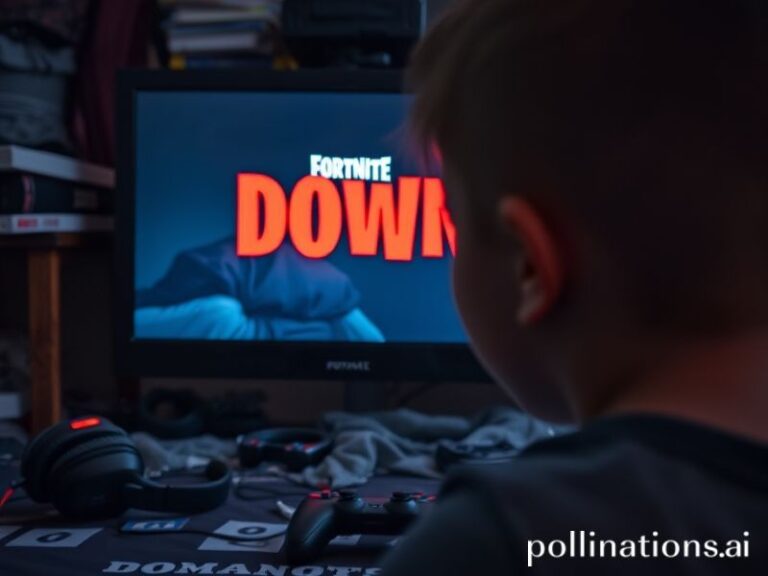DeAndre Hopkins and the Geopolitics of Getting Fired: How One NFL Cut Shook Global Sports Finance
In the grand bazaar of American football, where every yard gained is a national referendum on manhood and every dropped pass a Shakespearean tragedy, DeAndre “Nuk” Hopkins has always been the silk among the polyester. To the rest of the planet—where the word “football” still means a round ball you actually kick—Hopkins is less a player than a geopolitical weather pattern: a wide receiver whose contract negotiations register on the Richter scale of global sports finance.
While European clubs were busy discovering that even their Super League fantasies can be scuttled by angry tweets, Hopkins was quietly re-calibrating the value of human limbs in the NFL’s marketplace. When the Arizona Cardinals decided that paying him $19.45 million this season was too rich for their blood, they deposited him on the waiver wire like a defective Amazon return. From the vantage point of, say, Lagos or Lahore—where entire ministries would kill for that kind of discretionary budget—the move looked less like salary-cap hygiene and more like performance art about late-stage capitalism.
The immediate international ripple was textbook soft-power economics. Within minutes, betting syndicates from Macau to Malta shifted odds on next year’s Super Bowl; cryptocurrency exchanges listed Hopkins-themed NFTs that promised “exclusive locker-room audio” (spoiler: mostly grunts); and the British Broadcasting Corporation dispatched a crew to Houston to ask bewildered locals whether this qualified as “another American Brexit.” Meanwhile, China’s state-run tabloid Global Times ran an op-ed arguing that the release proves socialist sports planning is superior—then buried the piece when someone reminded editors that the Chinese Super League still owes its players six months’ wages.
Hopkins’ global Q-rating, that mystical metric once reserved for Hollywood divorces and royal babies, spiked in inverse proportion to America’s attention span. French sports daily L’Équipe devoted a full broadsheet to “L’Affaire Hopkins,” helpfully explaining that in the NFL you can be cut for being both too good and too expensive—a paradox the French understand intimately whenever they discuss labor law. Over in Brazil, Flamengo ultras Photoshopped Hopkins into their famous red-and-black stripes, because nothing says “international solidarity” like imagining an NFL star doing samba goal celebrations. Even the Taliban’s social-media desk weighed in, tweeting that at least in their league no one gets released for refusing a vaccine—though the follow-up about stoning for fumbling was, mercifully, deleted.
What fascinates the rest of us—those who measure distance in kilometers and existential dread in universal healthcare waiting lists—is how Hopkins’ saga exposes the NFL’s quiet role as America’s most effective cultural export. European soccer may still fill bigger stadiums, but only the NFL can turn a routine personnel decision into a cross-continental think piece about neoliberal precarity. Somewhere in Davos, a panel titled “Gridiron Globalization: Can a Post-Hopkins NFL Retain Soft-Power Hegemony?” is already scheduled between sessions on carbon credits and artisanal blockchain.
And so the carousel spins. Hopkins will land somewhere—Kansas City, Buffalo, or, if the gods truly hate us, Green Bay—where the local chamber of commerce will tout the move as proof their city is “world-class,” oblivious to how provincial that sounds to anyone who’s actually seen the world. The rest of us will watch, bemused, as American fans scream at one another over salary-cap minutiae while their bridges rust and their democracy wheezes. In the end, DeAndre Hopkins is just a man who catches oblong leather projectiles for money, but in 2023 that’s enough to make markets tremble from Tokyo to Toronto. Somewhere, a Bolivian llama herder who’s never seen a forward pass is dimly aware that something very expensive just happened. And that, friends, is the true miracle of globalization: making everyone on Earth mildly anxious about someone else’s wide receiver.







